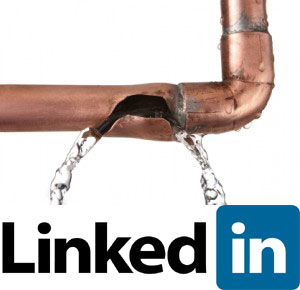 LinkedIn group discussions and status updates can be a great place to network, but be careful about disclosing confidential business plans or information to competitors in your industry
LinkedIn group discussions and status updates can be a great place to network, but be careful about disclosing confidential business plans or information to competitors in your industry
LinkedIn Groups are one of the best ways to get access to professionals in your industry niche and make important connections for advancing your career or business. Discussions can be very informative, as well as a good way to showcase your business expertise. LinkedIn status updates can also be a quick, efficient way to get out business news or updates to hundreds of industry connections.
But as group and status update participation continues to grow on LinkedIn for you and your business representatives, controlling your business message becomes more challenging.
How much should you share or disclose about your business for purposes of discussion? Are you giving away too many details about your business plans that may actually harm you with competitors?
From market expansion plans to new product initiatives or IT network infrastructure details, the inside view of your business can leave vulnerable to competition.
Some wonder… has LinkedIn become “leaked-in” for businesses?
The benefits seem to outweigh the potential risks, but there still needs to be some caution in use of LinkedIn groups. Businesses of all sizes should take simple steps to ensure LinkedIn Group discussions and status updates do not become a source for leaking confidential information.
LinkedIn Business Guidelines
Like any of your social media accounts, general usage guidelines should be established for yourself and your employees. Most of your other social media properties have one established account on behalf of your business – like Twitter or Facebook – but on LinkedIn everyone that works for your company is potentially a social media representative for your business because your company name follows their activity throughout the site. And the connections that you have on LinkedIn are probably your most important and influential in the industry… so what you share gets noticed.
First and foremost, let your employees know what is and isn’t acceptable to share on LinkedIn. Emphasize and re-emphasize when something is confidential. Give them the full go-ahead to share and discuss things that are not confidential and will actually help move your business forward by sharing.
On the same token, make sure your business partners understand what information can be shared, and what information must remain confidential.
Partners or suppliers may be excited about sharing news, and they need to be aware of any guidelines for discussing deal or customer details.
To monitor discussions, make sure that you have personally joined important industry or professional LinkedIn groups as well. Knowing that you are on the member list will help ensure no lines are crossed with confidential information. Trust is important to keep your employees openly discussing important topics on LinkedIn groups, so only step in when necessary. If something is shared that shouldn’t have been shared, address it immediately.
If you are a “solo-preneur” or a small business owner that manages all your core social media activity, then it is important to keep yourself in check. Your actions are obviously much easier to control because you should know best what information could be harmful or helpful to share on LinkedIn.
It can sometimes be a gray line between sharing information that can open new doors and opportunities for your business vs disclosing information that could constitute a leak in competitive information. Just be mindful that LinkedIn group participants – and even your own professional connections on LinkedIn – could include individuals that can help advance your business as well as those that could be looking for insider information to get a competitive edge.



